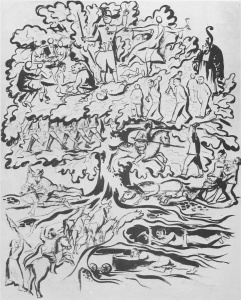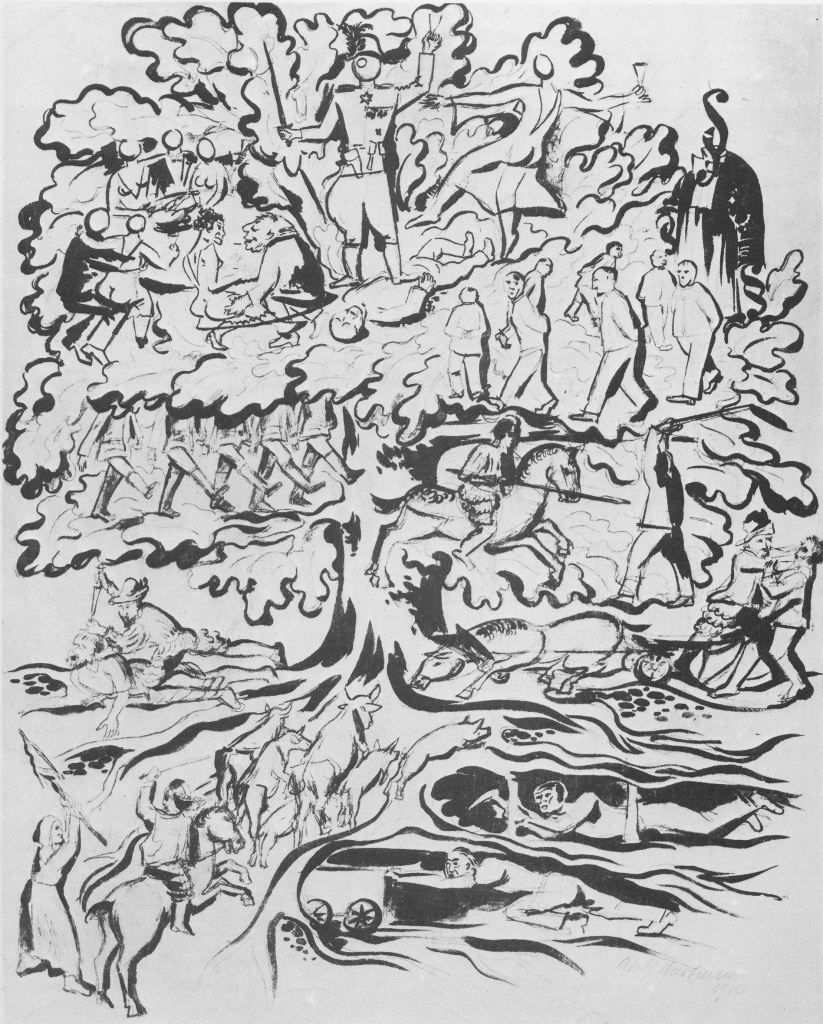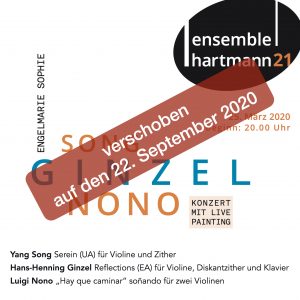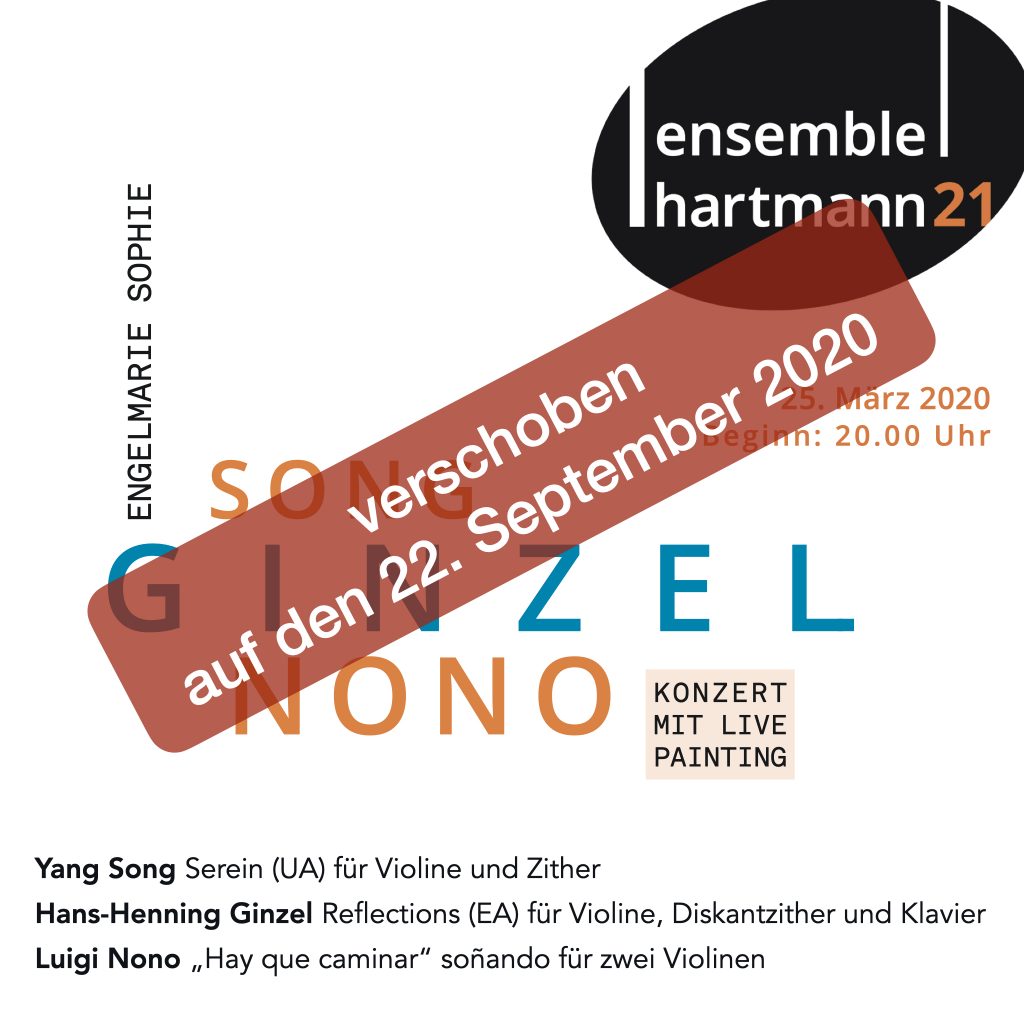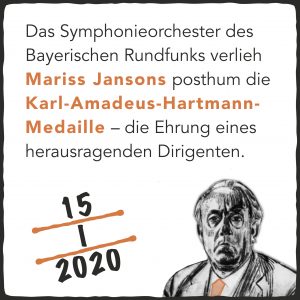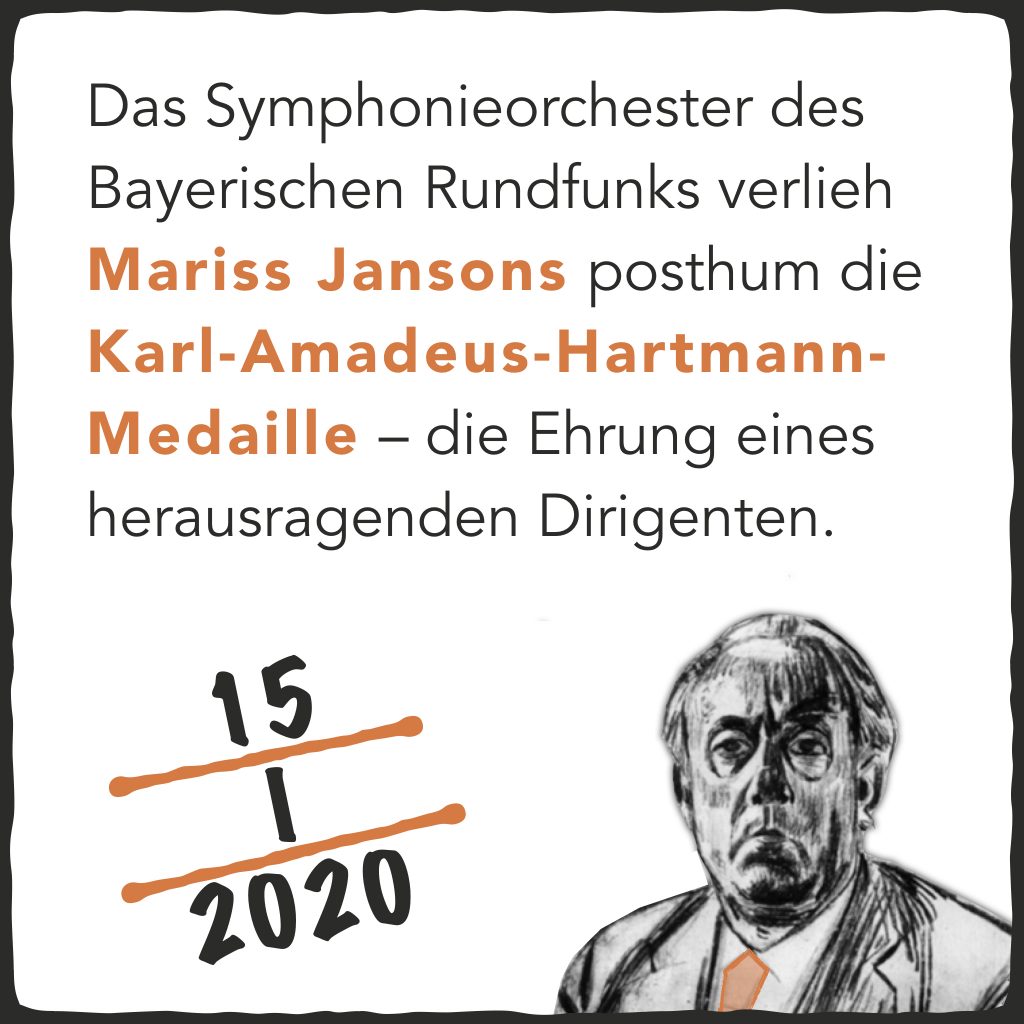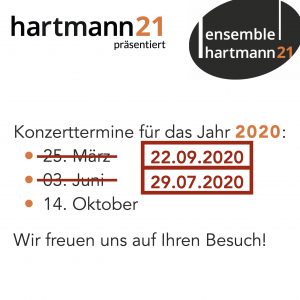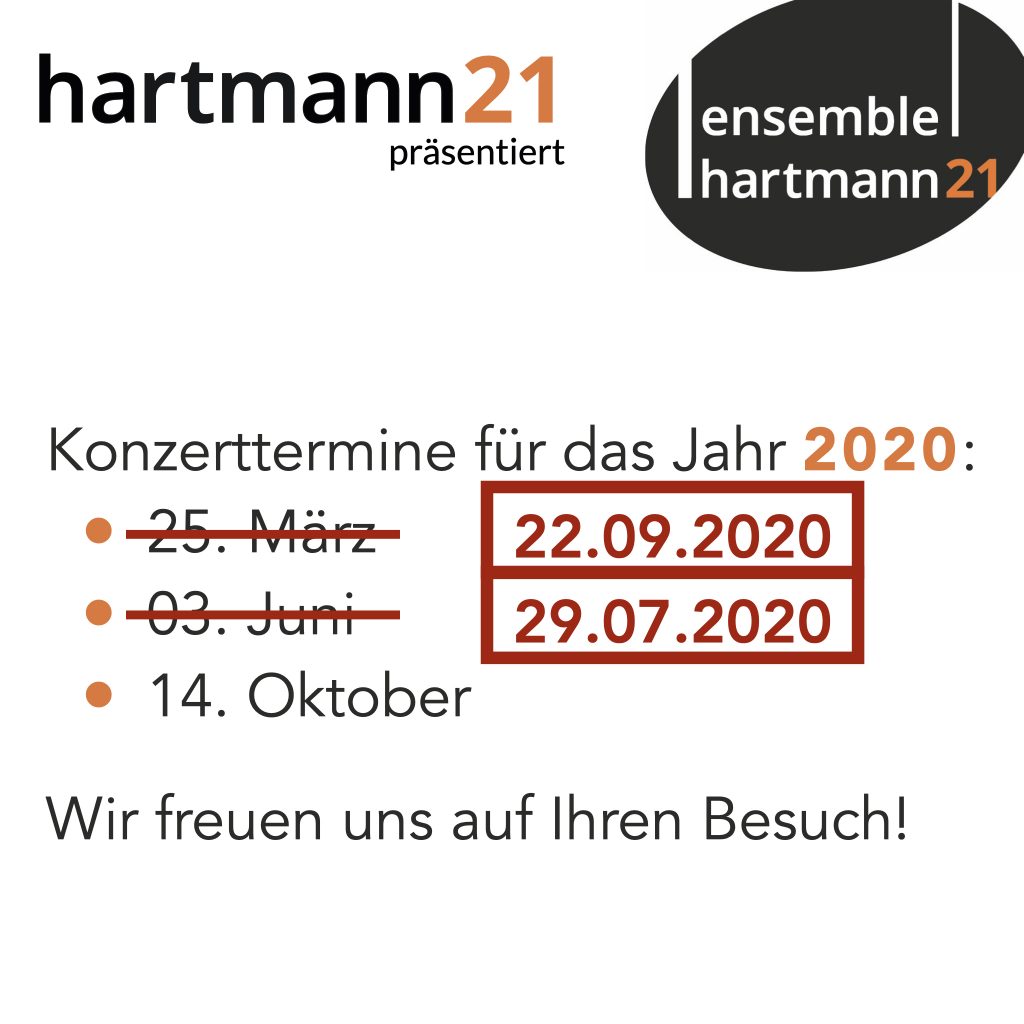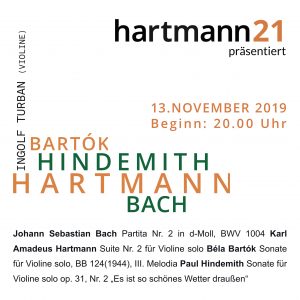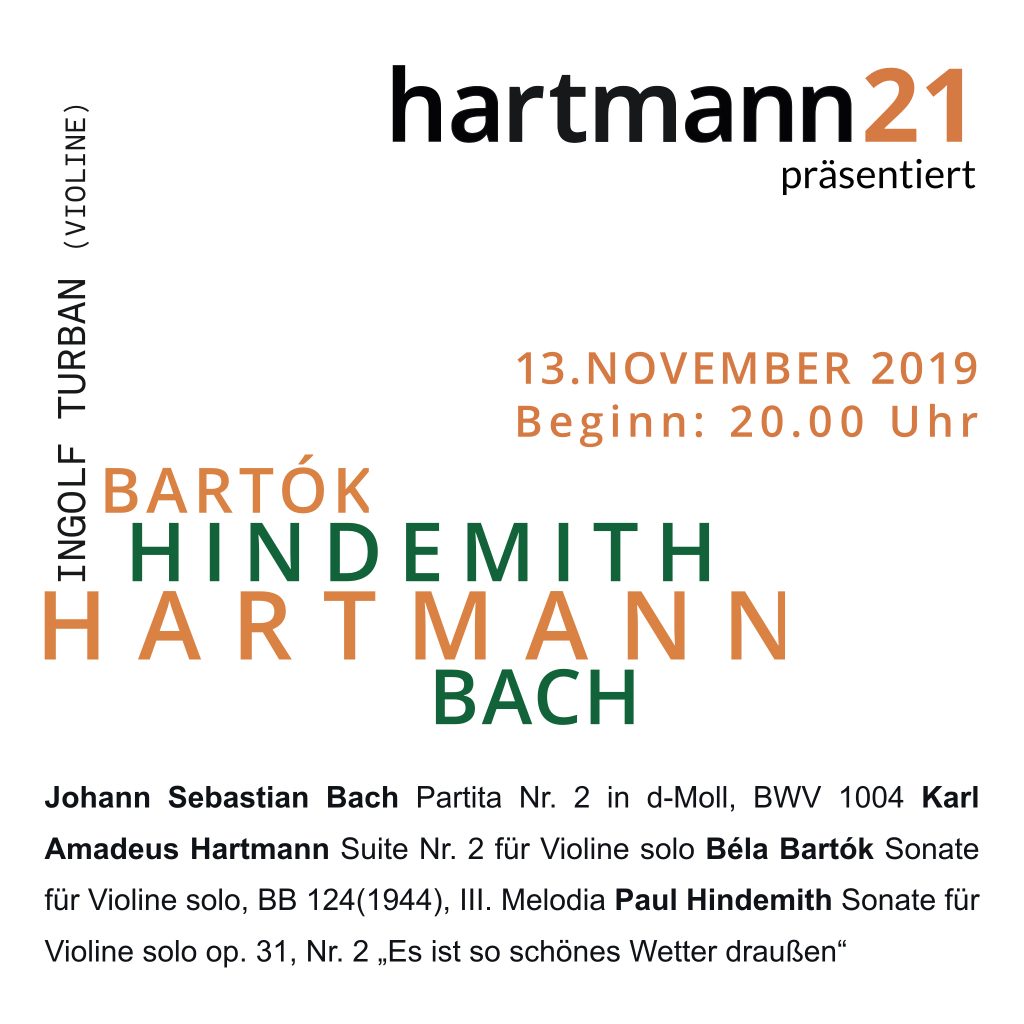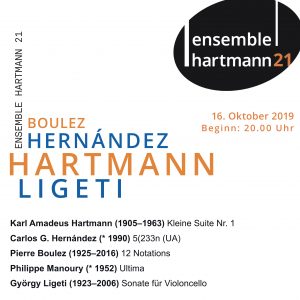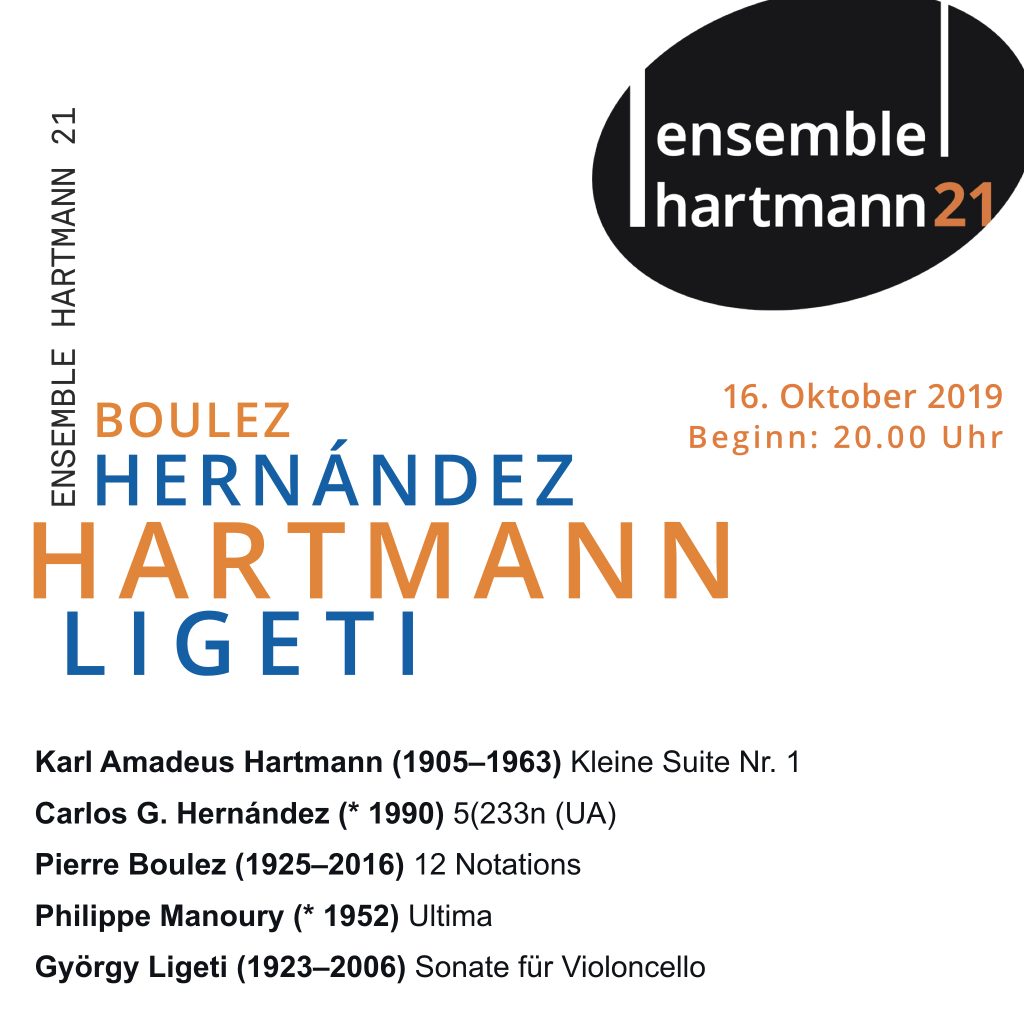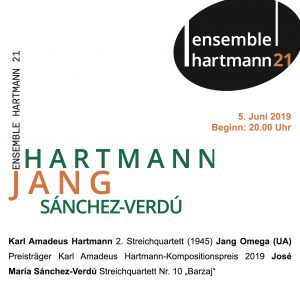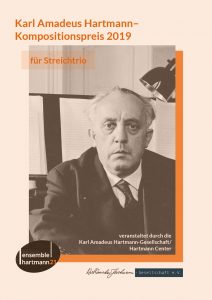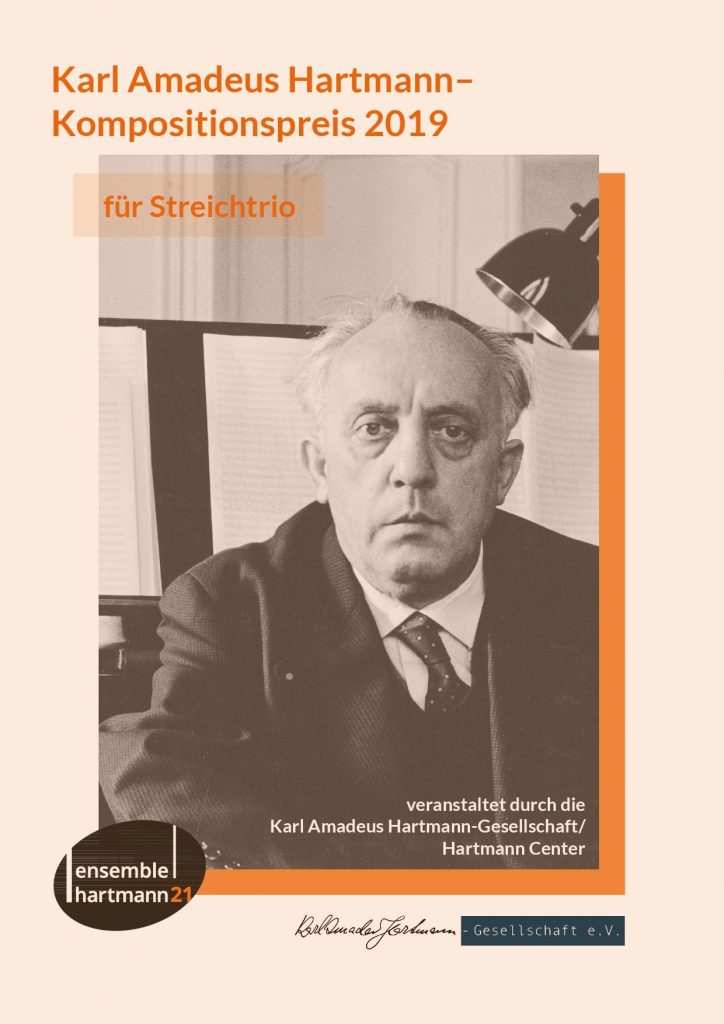In 1955 Karl Amadeus Hartmann wrote to the young Luigi Nono in his compositional album:
„Dein Stück soll virtuos, effektvoll, kühn, avantgardistisch, heutig, seherisch sein.“ [“Your piede should be virtuosic, effective, bold, avant-garde, contemporary, visionary.”] In the most beautiful way, our first concert of this year should make it clear that this not-so-silent demand (and also challenge) – which consciously frees itself from any musical style, focuses on content and unmistakably inspires a substantial opening – is timelessly valid. On the one hand, we can look forward to two works by the composers Philipp Mayer (*1995) and Hans-Henning Ginzel (*1988), which have been newly commissioned by us hot off the press.
On the other hand, Gloria Coates’ (*1938) “Night Music” and “Sonata for Piano No. 2”, as well as Georges Aperghis’ (*1945) “Rasch” invite us on a renewed journey of discovery through the rich œuvre of these two capital composers. Gloria Coates, who celebrated her 80th birthday last year, achieved an international breakthrough with the premiere of her “Music on Open Strings” (Symphony No. 1) at Warsaw Autumn 1978. It should become the most discussed work of the festival. In a music world dominated by men for a long time, she made her debut two years later with exactly this piece – as the first female composer with an orchestral work – in the musica viva concert series founded by Hartmann. Just how much Gloria Coates assimilates Hartmann’s demand is also revealed by her contribution to Renate Ulm’s (ed.) book “Eine Sprache der Gegenwart – musica viva 1945-1995”, in which she not only explicitly refers to Hartmann’s much discussed essay “Warum ist Neue Musik so schwer zu hören?” [Why is New Music so difficult to listen to?”] (1957), but also continues it – „reflektiert und in die Zukunft gedacht“ [“reflectively and with thought into the future” – in her own way.
The ensemble hartmann21 takes you into new worlds this time as well: By combining works for solo, duo and trio instrumentation, you may expect the most diverse tonal values through saxophone, viola, piano and gongs. The concert concludes with a discussion with Gloria Coates and the two composers of the works to be premiered: Philipp Mayer and Hans-Henning Ginzel.
An event of the © Karl Amadeus Hartmann-Gesellschaft e. V., sponsored by Bayerisches Staatsministerium für Wissenschaft und Kunst, Kulturreferat der Landeshauptstadt München, LfA Förderbank Bayern and Bezirk Oberbayern.
